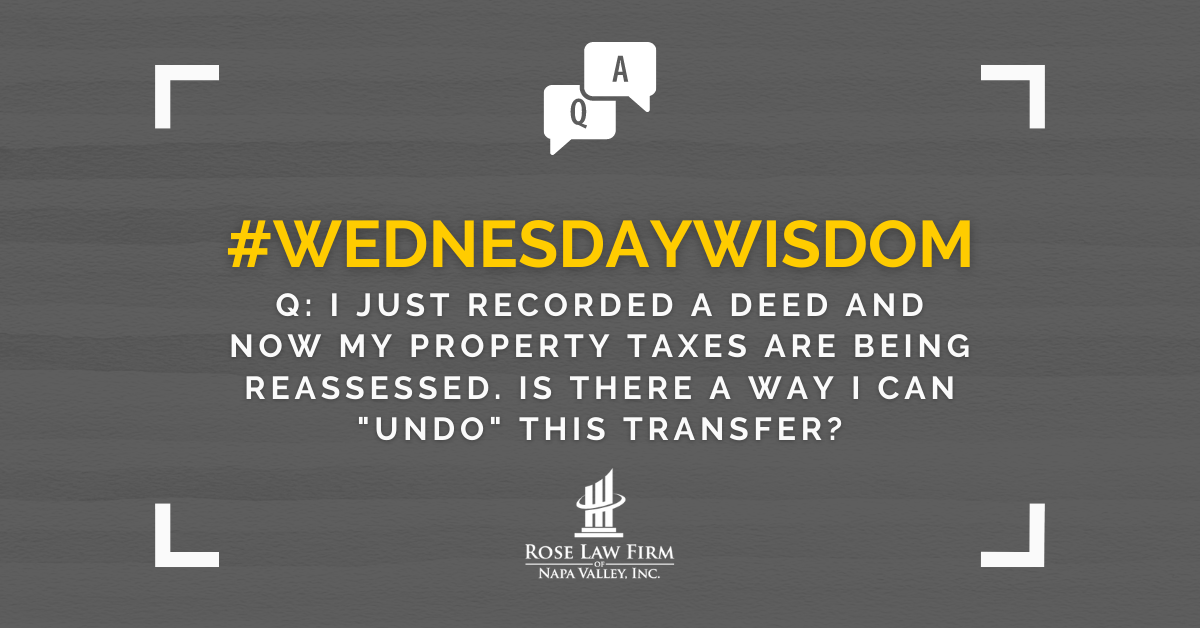
A: The law giveth, and the law taketh. Fortunately, if the original deed triggered a reassessment, we can use a “Rescission Deed” to return ownership to the previous owners (as if the previous deed had NEVER existed!). However, there are two CRITICAL caveats to be aware of: 1) The Rescission Deed itself must conform to certain legal requirements in order to be valid, and 2) The supplemental taxes resulting from the original deed will still have to be paid. By way of example: let’s say you sign and record a deed that inadvertently triggered a reassessment on January 1, 2020. On January 2, 2020 (the next day), you sign and record a Rescission Deed. The law states that the Assessor will still be able to charge you supplemental taxes all the way through June 30th of the following calendar year (i.e. supplemental taxes from January 1, 2020 through June 30, 2021). Although you may have to pay a hefty supplemental tax for recording that original deed, at least you can breathe a long-term sigh of relief knowing that a properly prepared and recorded Rescission Deed will cause the Assessor to restore you to your previous tax base beginning the following year!




